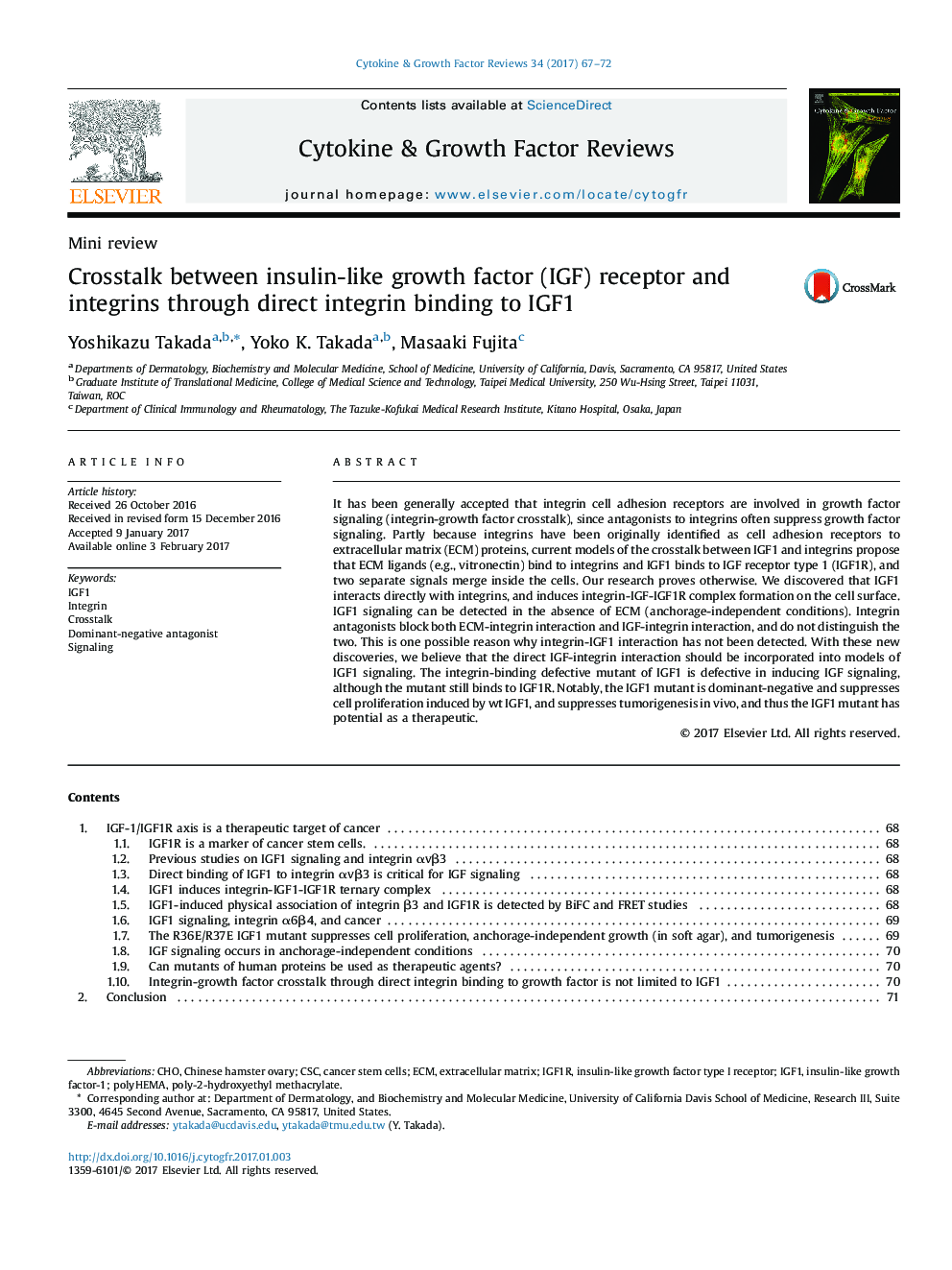| کد مقاله | کد نشریه | سال انتشار | مقاله انگلیسی | نسخه تمام متن |
|---|---|---|---|---|
| 5531179 | 1549490 | 2017 | 6 صفحه PDF | دانلود رایگان |

- IGF1 directly binds to integrins and induces ternary complex formation (integrin, IGF1, and IGF1R) on the cell surface. The integrin-binding defective IGF1 mutant is defective in inducing IGF signaling, although the mutant still binds to IGF1R.
- The integrin-binding defective IGF1 mutant is dominant-negative and suppresses cell proliferation induced by wt IGF1, and suppresses tumorigenesis in vivo.
- IGF1 signaling is detected in anchorage-independent conditions (in the absence of integrin-ECM interaction), suggesting that integrin-IGF1 interaction, rather than integrin-ECM interaction, is important for IGF signaling.
- In addition to IGF1, several other cytokines (FGF, neuregulin-1, fractalkine) directly bind to integrins and induce ternary complex formation, suggesting that integrins act as co-receptors common to these cytokines.
It has been generally accepted that integrin cell adhesion receptors are involved in growth factor signaling (integrin-growth factor crosstalk), since antagonists to integrins often suppress growth factor signaling. Partly because integrins have been originally identified as cell adhesion receptors to extracellular matrix (ECM) proteins, current models of the crosstalk between IGF1 and integrins propose that ECM ligands (e.g., vitronectin) bind to integrins and IGF1 binds to IGF receptor type 1 (IGF1R), and two separate signals merge inside the cells. Our research proves otherwise. We discovered that IGF1 interacts directly with integrins, and induces integrin-IGF-IGF1R complex formation on the cell surface. IGF1 signaling can be detected in the absence of ECM (anchorage-independent conditions). Integrin antagonists block both ECM-integrin interaction and IGF-integrin interaction, and do not distinguish the two. This is one possible reason why integrin-IGF1 interaction has not been detected. With these new discoveries, we believe that the direct IGF-integrin interaction should be incorporated into models of IGF1 signaling. The integrin-binding defective mutant of IGF1 is defective in inducing IGF signaling, although the mutant still binds to IGF1R. Notably, the IGF1 mutant is dominant-negative and suppresses cell proliferation induced by wt IGF1, and suppresses tumorigenesis in vivo, and thus the IGF1 mutant has potential as a therapeutic.
Journal: Cytokine & Growth Factor Reviews - Volume 34, April 2017, Pages 67-72